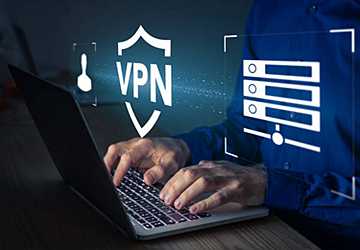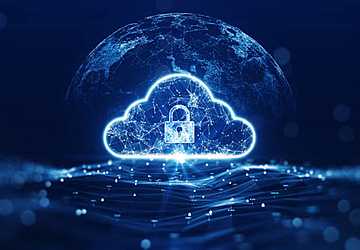8 Cybersecurity Tips Every Remote Worker Needs to Know
Have you ever worried about the security of your data while working remotely? Do you find yourself worrying about potential breaches or perhaps the safety of the data you handle daily?
The transition to remote work has brought along a myriad of cybersecurity threats, making our virtual office space a potential playground for hackers and cybercriminals.
These concerns aren't just yours; they've been a monumental challenge for many of us. Considering the increasing number of remote workers, there’s a need to ensure our data remains uncompromised.
But every challenge, no matter how daunting, has a solution. The need for these solutions isn't just about keeping your data safe.
Read this blog post to find 8 Cybersecurity tips that every remote worker should know.
Let's dive into it!
8 Strategies for Online Safety in Remote Work
In the era of digital workspaces, ensuring online safety in remote work is paramount.
Remote work comes with its perks, but it's essential to stay guarded against lurking cyber threats.
Adopting robust cybersecurity practices helps remote workers fend off threats and maintain the integrity of their data.
1. Regularly Update Your Software and Systems
Keeping your software and systems up-to-date might seem mundane, but it's a lifesaver. Updated software patch vulnerabilities, ensuring you aren't an easy target for hackers.
No more worrying about outdated systems being a security risk. Set your systems to update automatically. Never postpone them.
Important Aspects:
● Prioritize OS and antivirus software updates.
● Keep an eye out for software recalls or known vulnerabilities.
● Educate yourself on the importance of each update.
Embracing regular updates shields you from potential cyber-attacks, ensuring seamless and safe operations.

2. Use a Reliable VPN
A Virtual Private Network (VPN) is your cyber bodyguard when browsing. VPNs encrypt your data, making it unreadable to prying eyes.
With a VPN, your online activities remain anonymous, keeping your data out of hackers' hands.
Say goodbye to geo-restrictions and hello to enhanced privacy. Choose a reputable VPN provider. Avoid free VPNs, as they often come with hidden costs.
Important Aspects:
● Ensure your VPN has a strict no-logs policy.
● Look for VPNs that offer AES-256 encryption for top-level security.
● Regularly update your VPN application.
VPNs offer a protective shield around your online presence, a must-have for every remote worker.
3. Two-factor authentication (2FA)
2FA adds an extra layer of security to your login processes. Even if your password is compromised, 2FA ensures the hacker can't gain access.
Provides a secondary gate, typically a code sent to your mobile or email, blocking
unauthorized access.
Stolen passwords won't spell disaster anymore. Enable 2FA on all accounts that offer it, especially work-related ones.
Important Aspects:
● Always ensure your secondary device (e.g., phone for SMS codes) is secure.
● Use authenticator apps where possible, as they're more secure than SMS codes.
● Stay aware of phishing attempts trying to bypass 2FA.
With 2FA, you're always a step ahead of cyber threats, making your data doubly secure.
4. Be Wary of Phishing Scams
Phishing emails disguise themselves as trustworthy entities, luring you into sharing sensitive info.
Being vigilant prevents identity theft and loss of valuable data. Recognizing phishing scams ensures you don't fall for them.
Knowledge is power. Educate yourself on the latest scam techniques. Never click on suspicious links. Always verify the sender's details.
Important Aspects:
● Scrutinize email sender addresses.
● Beware of alarming or urgent language in emails.
● Keep your antivirus updated; many detect phishing sites.
In the cyber world, it pays to be skeptical. Trust your instincts, and when in doubt, double-check.

5. Secure Your Wi-Fi Network
A vulnerable Wi-Fi can be an open door for cyber attackers. A secure Wi-Fi ensures your online activities remain private and aren't compromised.
Encrypted Wi-Fi connections minimize the chances of man-in-the-middle attacks. No more fretting about neighbors or intruders piggybacking on your connection.
Regularly change your Wi-Fi password and avoid using default login credentials.
Important Aspects:
● Enable WPA3 encryption on your router.
● Rename your Wi-Fi network to something non-identifying.
● Regularly update your router’s firmware.
By buttoning up your Wi-Fi network, you fortify the first line of defense against cyber threats.
6. Regularly Backup Your Data
Data loss can be devastating, making backups non-negotiable. Regular backups ensure that even in the face of data breaches or system failures, your data remains safe.
It provides a recovery point, ensuring work continuity. No longer live in fear of ransomware attacks or accidental data deletions.
Use a combination of cloud-based and physical backups for maximum security.
Important Aspects:
● Ensure cloud backups are encrypted.
● Set up automatic backup schedules.
● Periodically test your backups to ensure they work.
Regular backups are your safety net, offering peace of mind in uncertain cyber terrains.
7. Educate Yourself Continually
The cyber landscape is ever-evolving. Staying informed is your best defense. Continuous education equips you with knowledge about emerging threats and ways to counteract them.
Being proactive in learning helps in spotting and avoiding potential cyber threats. Become less reliant on tools and more on knowledge and intuition.
Subscribe to cybersecurity newsletters or blogs, and attend relevant webinars.
Important Aspects:
● Familiarize yourself with common cyber terminologies.
● Stay updated on recent breaches or vulnerabilities reported in the tech world.
● Join online cybersecurity communities for shared insights and experiences.
Equip yourself with knowledge, and you'll be a formidable force against cyber threats.
8. Limit Access and Use Strong Passwords
Not all data is for everyone. Limited access coupled with strong passwords is essential.
Ensures only authorized personnel access sensitive information, reducing breach risks. Creates a tiered defense structure where every layer has its protection.
Eliminates potential internal threats or data access by unauthorized parties. Use password managers to generate and store complex passwords.
Important Aspects:
● Implement role-based access controls.
● Use multi-character, lengthy passwords that are hard to guess.
● Change passwords periodically and after any security incident.
In a world filled with cyber risks, limiting access and using strong passwords act as a robust fortress, guarding your precious data.
Your Key to Safe Remote Working
Navigating the remote work world doesn't have to be a minefield. While remote work offers unparalleled flexibility, it's accompanied by cyber risks.
Remember, in the realm of cybersecurity, it's always better to be proactive than reactive.
So, are you ready to step up your cybersecurity game? Let's safeguard your remote work journey together.